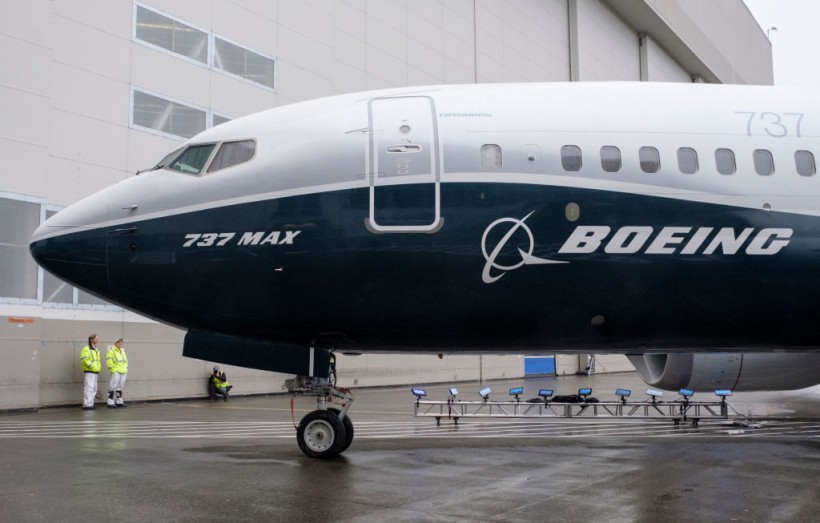The certification for the new Boeing 737 Max 7 will now be delayed since the American aircraft manufacturer decided to cancel its safety exemption request.
Boeing asked for a safety exemption for its 737 Max 7, the smallest version of the 737 Max airplane family, until May 2026 to allow it to work on a long-term fix for an issue.

The first Boeing 737 MAX 7 aircraft sits on the tarmac outside of the Boeing factory on February 5, 2018, in Renton, Washington. The 737 MAX 7 will have the longest range of the MAX airplane line with a maximum range of 3,850 nautical miles.
The specific problem with this small airplane is its engine inlet de-icing system, which was identified by the Federal Aviation Administration in 2023.
The safety exemption was supposed to allow the 737 Max 7 to get its certification while Boeing is still working to fix the de-icing system's flaw. However, this is no longer the case.
Boeing Cancels Its Safety Exemption Request for New 737 Max 7
On Monday, Jan. 29, Boeing confirmed that it is withdrawing its 737 Max 7's safety exemption request. The American airplane designer did this as it faced pressure from U.S. officials over the recent incidents involving its passenger planes.
"We have informed the FAA that we are withdrawing our request for a time-limited exemption relating to the engine inlet de-icing system on the 737-7," said Boeing via The Seattle Times.
The aircraft maker added that instead of relying on the safety exemption request, what they will do is incorporate an engineering solution, which is expected to be completed during the certification process.
This is a major turn of events since Boeing recently asked federal regulators to allow it to begin delivering the 737-7 airplanes even though they don't meet a safety standard to prevent overheating and breaking off during flights, as reported by Fortune.
Read Also: FAA's Decision to Limit Boeing Max Production Growth Might Hurt Suppliers, Airlines: Report
How Will This Affect Boeing?

The Boeing logo hangs on the corporate world headquarters building of Boeing on November 28, 2006, in Chicago, Illinois. Orders for U.S. manufactured durable goods saw an 8.3 percent decrease in October. Aircraft orders dropped 45 percent for the same period.
Boeing's latest decision to withdraw the safety exemption request comes after the Senate Committee on Commerce, Science and Transportation's Chair Sen. Maria Cantwell and Tammy Duckworth, the aviation safety subcommittee chair of the committee, urged FAA to deny the company's request.
But, both of them commended the decision of Boeing to cancel its own safety exemption request.
"I'm both relieved and appreciative that they are putting the flying public's safety first by withdrawing this petition," said Duckworth.
"I hope this decision marks the beginning of a turnaround in Boeing's safety culture," she added.
However, the 737 Max 7 certification delay is not just the only negative effect of Boeing's latest decision. Aside from this, it would also cut the aircraft manufacturer's promised cash flow for 2024.
Related Article: US Airlines Canceled Boeing Orders to Be Purchased by Ryanair Despite Recent Incidents-but Why?








